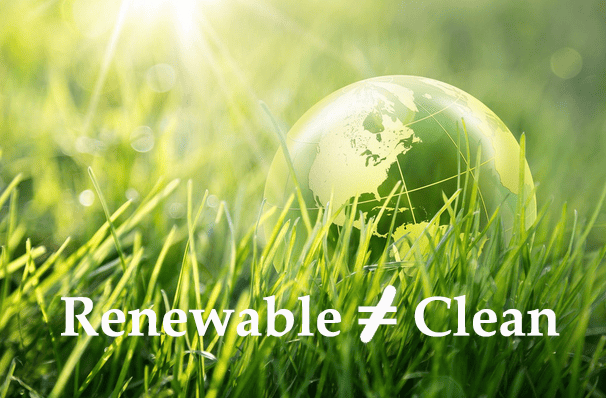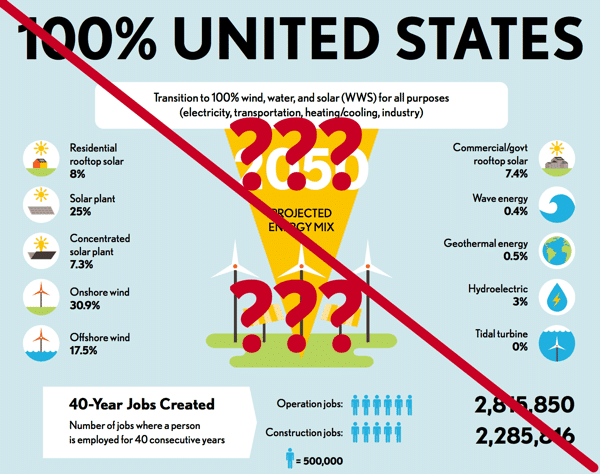Why is nuclear energy an important influence on both natural gas and hydrogen futures?
The Feb 6, 2024 Energy Gang podcast was titled “A pause in US gas export approvals: a big win for the climate?
US hits the brakes on gas exports!”
It was described as a gassy episode with a focus on international natural gas trading, the impact of the Biden Administration’s pause on issuing new permits that would enable future growth of what is already the world’s largest gasification infrastructure and the production and use of hydrogen as a partial natural gas replacement.
The value of the conversation, however, was limited because the Gang members made a choice – perhaps conscious, perhaps not – to completely ignore a major influence on the present and future of both natural gas and hydrogen.
Nuclear energy matters in energy discussions. It has both current and future importance on both LNG and hydrogen production and demand.
Say its name, Energy Gang members.
Several parts of the discussion were misleadingly incomplete due to excluding nuclear from the conversation.
The trade and investment press that covers the natural gas industry and the markets associated with global trade of that commodity often mention the impacts that nuclear plant operations – or lack of operations – have on their industry and their commodity. History shows that significant changes in nuclear production can cause LNG prices to rise sharply. If there is a subsequent production recovery, those prices fall almost as quickly.
Here is a partial list of recent examples where nuclear output changes had a major effect on natural gas.
- Moon Jae-In’s halt in new construction in South Korea during his 2016-2021 presidency
- The extended shutdown period of Japan’s large fleet of reactors
- France’s period of constrained output as a result of repairing corrosion-related defects
- Germany’s long planned and executed exit from nuclear
Traders care deeply about their commodity’s supply and demand balance. Ever since the US upended the LNG market by offering contracts where the price is not linked to the price of oil, nuclear energy production has directly impacted LNG profitability.
Project developers care whether or not the changes are temporary or long term. Those who are considering projects that are not yet permitted might be secretly grateful for a pause. It gives them some time to watch developments to see if there really is a market for even more export capacity. Those who have capacity or permitted capacity already should definitely be grateful for restrictions on new facilities.
Over the long term, the trajectory of nuclear energy will play an enormous role in the profitability and sustainability of LNG investments. It would have been useful to your audience to at least speculate about the possible impact on LNG if the sector achieves the tripling of capacity that 24 countries agreed to pursue in a declaration issued during COP28.
The Energy Gang covered Pakistan’s growing LNG imports and the effect that the European energy crisis had on gas prices and supply for that developing country. They mentioned their increased interest in “renewables.” In that context, it would have been useful to help the audience learn that Pakistan’s nuclear sector cleanly supplies 10% of its electricity and that its energy supply challenges encouraged it to commit to the summer 2023 deal for China to supply another large reactor that would increase its nuclear capacity by 25%..
The show mentioned COP commitments to increase renewables and efficiency but overlooked the 24 country declaration to triple nuclear. That pledge did not make it to the consensus commitment because of devoted opposition from a few countries like Germany and Austria, but that opposition is unlikely to slow the growth very much.
Related to COP28 was the near completion by the UAE, a major natural gas exporting country, of a 5400 MWe nuclear power station. That single site will soon produce 25% of the country’s electricity. Not only does Barakah provide a dramatic improvement in the country’s emission profile, it frees up a major new supply of natural gas that is no longer being burned to produce domestic electricity and heat.
The Gang questioned the customer pull for LNG from nations that might not want to become geopolitically dependent on imports from US, but they overlooked the number of developing countries that are clamoring for nuclear power plants and pushing for support from the international development banks.
Ed Crooks, the show’s host, said that developing nations would be choosing between coal and natural gas for their baseload power sources and then said that those are their only two choices. Slovakia, Ukraine, Belarus, Pakistan, Bangladesh, UAE, Egypt, Turkey and others have recently made major investments proving that nuclear is on the list of baseload alternatives for developing countries. Some of those recent investments are already producing clean electricity.
Russia and China are pursuing additional customers with dedication and skill.
The Gang’s careful avoidance of the word “nuclear” was most apparent during the show’s hydrogen discussion.
It’s hard to fully understand the controversy surrounding the IRS rules associated with section 45V hydrogen tax credits without discussing the 3 proposed hydrogen hubs where H2 electrolysis using existing nuclear generated electricity is a major part of the planned output. A rule that excludes those projects from the 45V credits will have a major impact on the trajectory of the hydrogen industry.
An interesting note about the spectrum of colors used to define various hydrogen production methods is that hydrogen produced using nuclear energy has its own spectrum that includes pink, purple (violet) and red depending on which technologies are used. All nuclear powered hydrogen options, however, produce H2 without any associated emissions.
In my opinion, any hydrogen produced using energy sources that do not pollute the local atmosphere or contribute to global CO2 emissions should be encouraged and called clean.
The show taught me that there might be a “temporary” provision that directly contradicts congressional intent by allowing “annual matching” instead of hourly matching. That is a concerning red flag that seems focused on giving RE a major advantage.
I’m deeply concerned about the Energy Gang’s coverage decisions because it is an influential show that reaches tens of thousands of interested listeners and because two of the show’s participants are academics teaching in major university climate programs.
The show was about the same duration as a typical college class. If the guests failed to mention nuclear due to a lack of time during the show, do they make the same decision when creating their syllabus and devising individual lesson plans?
Do they require students to perform any calculations that show the impacts of adding or subtracting hundreds of GWe of reliable nuclear energy to compete with emitting natural gas or to produce clean hydrogen and synthetic fuels.
I’ve heard frequent dismissal of nuclear as too expensive and too slow. But each of those characteristics are the result of human decisions and can be addressed through human actions.
There was a time in recent history where both criticisms could be made against large scale renewables. Even today, there are many examples where both apply – offshore wind, tidal, and geothermal come to mind. So do large scale solar and wind on grids where there is a long connection queue or where there is substantial local opposition.
There was even a recent court case in Oklahoma where an indigenous land owner (the Osage) won a judgement that would require an existing wind farm to be removed and the land restored because the developer did not obtain required permits and permissions to build the farm.
Energy is complex field. Energy-focused shows should provide listeners with more inclusive shows that provide a greater opportunity to understand major impacts and alternatives.
Note: I chose the image of an anchored LNG tanker to illustrate what can happen when nuclear energy produces power for a potential LNG customer.





“I’ve heard frequent dismissal of nuclear as too expensive and too slow. But each of those characteristics are the result of human decisions and can be addressed through human actions.”
^^^^^
This is the revelation. We’re top heavy, union heavy, skill deficient, and generally without purpose and hunger. We’re starting to figure it out though…. that we need more plumbers and less rappers.
It’s certainly not a surprise that the podcasters neglected nuclear. This is quite common. I’m sorry but I had this stereotype of them while listening. One spoke of a new Polestar electric car. They were academics and did not impress me as hands-on practical people. They were concerned with policy and little if anything was said about how these policy changes would affect the lives of average people.
I’ve seen a lot about hydrogen recently. There is talk of using a lot of hydrogen for new methods of making steel. I saw an article about improved fuel cells that could use hydrogen. The energy density of hydrogen is greater than gasoline. Storage can be a problem in vehicles, but there are a lot of stationary applications that could run on hydrogen. The podcast alluded to the blending of hydrogen with natural gas. There are a thousand more uses.
So I’ll ask what perhaps should have been asked in the podcast. Is there a possibility that a nuclear plant could be built solely to produce hydrogen? (I’m not sure what color they would call it.) It appears that there will be a great demand for hydrogen produced from emission free sources in the next few years.
Thanks for the article.
Putting a sprig of parsley on a slab of steak does not make it vegetarian, but the marketing people would still call it “green”. We should not engage in the relabelling process, but simply call nuclear-derived hydrogen “fossil free”. We can leave it then to the intelligent layman to realise that everything else has a fossil content.
Just as recycled carbon can be proven by its carbon-14 content, fossil-free hydrogen can be proven by its tritium (hydrogen-3) content. Both isotopes are created by cosmic rays reacting with nitrogen in the upper atmosphere, so are naturally present in the environment. Both have long since died away during fossilisation.
US is a huge energy producer in a world that still has plenty of energy poverty.
Over 700 Million people do not have access to energy as we know it in the US.
Over 2.5 Billion people still cook by burning dung, wood, or trash producing health hazards.
It’s a good bit of arrogance to pretend benevolence while advocating lower energy production.
I worked 45 years in Nuclear Energy from 1970s US Navy to the largest commercial reactors in the world. That time in the Navy exposed me to *dirt floor reality*. We live in a very sanitary and safe world because of access to energy.
We need more energy, especially the cheapest, distributed the most efficient way we can. Denying real, living people energy out of some contested climate change concern based on biased models lacks humanity.
Earth climate changes on its own. Ice Ages. Warming Periods. Extinctions. Completely natural.
Sweating 3 degrees in a century seems alarmist.
Rob
I share some of your professional background. I also share your concern for those suffering in energy poverty. I don’t agree that human society should ignore the warning signs already available of the risks of pushing our global average temperature up by several degrees in a single century.
The planet can and will survive. But will society? And if some of society does adapt, how well do you think that the currently energy-poor will fare in the face of changing weather patterns, changes in coastlines, and intensification of heat waves?
Our cheapest, most abundant primary energy source is atomic fission. We should do everything we can to help everyone recognize this fact so that we can move down learning curves, develop new technologies and proliferate the technology to serve an ever wider swath of mankind.
If fossil fuels could do that job without nuclear energy’s help, don’t you think they already would be doing the job? We have been using them for a couple of hundred years; their use has always helped to lead to wide variations in prosperity and energy access.